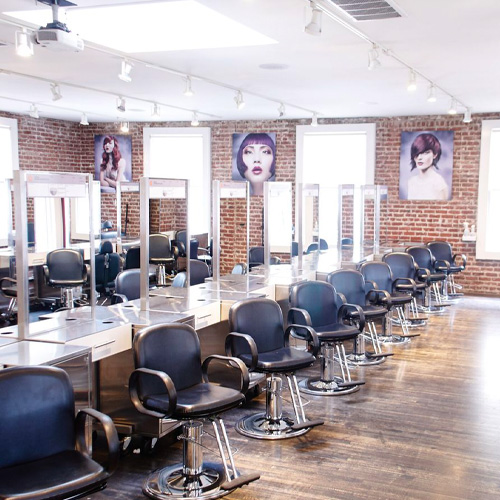If you’re considering a career in the beauty industry, becoming a cosmetologist could be your ideal path. Cosmetologists are skilled professionals who specialize in various beauty treatments, from hairstyling to skincare. This guide will walk you through the essential steps to pursue a career in cosmetology, including the required skills, education, and career opportunities.
Cosmetology is a diverse and dynamic field that offers a wide range of career opportunities. A cosmetologist is someone trained in beauty treatments, including haircuts, color, facials, and nail care. They may work in salons, spas, or even run their own beauty businesses. This guide will help you understand what it means to be a cosmetologist, the education and skills required, and the career prospects in this exciting field.
What Does a Cosmetologist Do?
A cosmetologist is primarily responsible for performing beauty services such as hairstyling, makeup application, and skincare treatments. They may work in salons, spas, or medical settings, offering a variety of services tailored to individual clients. In addition to haircuts and color, cosmetologists also offer services such as manicures, pedicures, facials, and waxing.
Core Responsibilities:
- Cutting, coloring, and styling hair
- Providing skincare treatments like facials and peels
- Applying makeup for special occasions
- Nail care including manicures and pedicures
Specializations: Some cosmetologists specialize in a specific area, such as makeup artistry, hair coloring, or skincare treatments. For instance, a licensed cosmetologist may choose to focus on bridal makeup or specialize in high-end hair color services.
Work Environments: While many cosmetologists work in salons or beauty spas, others may find opportunities in hospitals, cruise ships, or even as freelancers providing on-site beauty services.
Skills and Attributes Required
To succeed as a cosmetologist, a combination of technical skills and personal qualities is
essential.
Essential Skills:
- Physical Dexterity: A cosmetologist must have excellent hand-eye coordination to perform precise tasks like cutting hair or applying makeup.
- Customer Service: Building a loyal clientele is crucial, so communication skills are key.
- Creativity: Cosmetology involves artistic work, so a flair for creativity will help you stand out in a competitive market.
Building a Clientele: Starting out as a cosmetologist can be challenging, but building a loyal client base through exceptional service and strong personal relationships can lead to success.
How to Become a Licensed Cosmetologist
- Complete a Cosmetology Program: Enroll in a state-approved program with at least 1,600 hours of training. Expect tuition between $10,000 and $20,000. The program includes training in hair, skin, and nail care.
- Apprenticeship Option: Alternatively, pursue a 3,200-hour apprenticeship with 220 hours of classroom training. This option takes about two years.
- Submit Application: After completing your program or apprenticeship, submit your application to the California Board of Barbering and Cosmetology (BBC). You must be at least 17 years old and have completed the 10th grade.
- Pass Exams: You’ll need to pass a written (multiple-choice) and practical exam. The written exam has 100 questions, and the practical exam is completed in 4 hours. Both exams are necessary for licensure.
- License Fees: Initial license fee: $125. Renew every two years for $50.
- Salary: In San Francisco, cosmetologists earn an average annual salary of $29,000 to $32,000.
This concise guide helps you understand the process of becoming a licensed cosmetologist in San Francisco quickly and efficiently.
Career Opportunities in Cosmetology
Cosmetology offers a wide range of career opportunities across various specialties in the beauty industry. As a licensed cosmetologist, you can explore numerous paths that allow for flexibility, creativity, and financial success. Here’s an overview of key career opportunities:
- Hair Stylist: Hair stylists are in high demand, with many working in salons, spas, or even operating their own businesses. Stylists perform cuts, color treatments, and other hair care services. Additionally, they often specialize in areas such as hair extensions, coloring techniques, or men’s grooming. The job offers flexibility, with stylists able to work in both full-time and freelance settings.
- Esthetician: Estheticians focus on skin care, offering services like facials, hair removal, and acne treatments. In San Francisco, there is significant demand for skin care specialists due to the high number of beauty-conscious consumers. Estheticians can work in salons, medical spas, or dermatology offices, and with additional training, they can become licensed to perform more specialized treatments like microdermabrasion or chemical peels.
- Nail Technician: Nail technicians provide services such as manicures, pedicures, and nail art. This role is ideal for individuals who enjoy intricate, detailed work and have a passion for trends in nail design. With proper training, nail technicians can specialize in areas like gel nails, acrylics, or nail restoration.
- Makeup Artist: Cosmetologists can specialize in makeup artistry, offering services for weddings, events, or photoshoots. Some makeup artists work in film and television, creating looks for actors, while others focus on personal makeup lessons or special occasions. It’s a field with growing opportunities, especially for those with a flair for creativity and a strong portfolio.
- Salon or Spa Owner: For those with entrepreneurial ambitions, owning a salon or spa offers the opportunity to control your own business. Cosmetologists who have gained experience in the field often branch out by opening their own establishments, providing services like haircuts, facials, manicures, and massages. In addition to technical expertise, business skills such as marketing, management, and financial planning are crucial for success.
- Beauty Educator: Experienced cosmetologists can also transition into teaching by becoming educators in cosmetology schools. As a beauty instructor, you would train the next generation of beauty professionals, teaching subjects ranging from basic techniques to advanced cosmetology. This is an excellent choice for those who are passionate about sharing their knowledge and experience.
- Specialized Roles: Cosmetologists can further specialize in niche areas such as:
- Brow Artists: Focus on eyebrow shaping, tinting, and microblading.
- Lash Technicians: Specialize in eyelash extensions, lifts, and tints.
- Barbers: For those interested in men’s grooming, specializing in beard trimming, shaving, and haircuts.
- Corporate Roles: Many beauty brands and companies offer corporate opportunities for experienced cosmetologists in areas like marketing, product development, and training. With your background in beauty services, you could help guide product innovations or become an educator for beauty brands.
- Freelance or Contract Work: Freelance work in cosmetology provides independence Cosmetologists can work on their terms, setting their hours and working at various venues like weddings, fashion hows, and photoshoots. Freelancing allows you to build a flexible career with higher earning potential, depending on your clientele and niche.
- Celebrity or High-End Fashion Stylist: For top-tier cosmetologists, there’s the potential to work with celebrities or in high-end fashion shows. These roles demand advanced skills and often require networking and strong industry connections.
Financial Insights: While starting salaries vary, cosmetologists in San Francisco can expect an average salary between $29,000 and $32,000 annually, with the potential to earn more with experience, clientele, or specialization.
Earning Potential and Financial Insights
The earning potential of a cosmetologist can vary significantly based on location, specialization, and work environment.
Average Salaries: In the U.S., the average salary for a cosmetologist is around $30,000 to $60,000 per year, depending on experience and location. High-end salons or specialized services, like bridal or celebrity makeup, can lead to higher earnings.
Freelancing vs. Employment: Freelancers generally have the flexibility to set their own rates but may experience inconsistent income. Employed cosmetologists often have a stable salary but may face commissions or performance-based incentives.
Challenges and Rewards of Being a Cosmetologist
While the beauty industry offers plenty of rewards, it also presents challenges.
Common Challenges:
- Physically Demanding Work: Long hours and standing for extended periods can be physically exhausting.
- Client Expectations: Balancing client requests with personal creativity can sometimes be difficult.
Creative Fulfillment: For many cosmetologists, the greatest reward is the opportunity to express creativity while helping clients feel confident and beautiful.
Tips for Managing Workload: Efficient time management and setting clear boundaries with clients can help cosmetologists handle the demands of their job.
Conclusion
Becoming a licensed cosmetologist in San Francisco is an exciting and rewarding career choice. With the right education, training, and dedication, you can embark on a path filled with creative opportunities and personal fulfillment. By completing a state-approved program or apprenticeship, passing the necessary exams, and maintaining your license, you’ll be on your way to a successful career in the beauty industry. As you gain experience and build your clientele, the earning potential is substantial, making it a viable and long-term profession. With a clear roadmap to licensing, aspiring cosmetologists can confidently take the first steps toward entering this dynamic field.
FAQ’s
1. How Much Does Cosmetology School Cost in California?
Cosmetology programs in California cost between $10,000 and $25,000, depending on the school and location. Financial aid and payment plans may be available.
2. How Long is Cosmetology School in California?
A typical program requires 1,600 hours of training, taking about 12 to 18 months to complete full-time.
3.What is the Best School to Go to for Cosmetology in California?
Top schools include Paul Mitchell Schools, Aveda Institutes, and FIDM (Fashion Institute of Design & Merchandising), known for their quality programs and industry connections.












